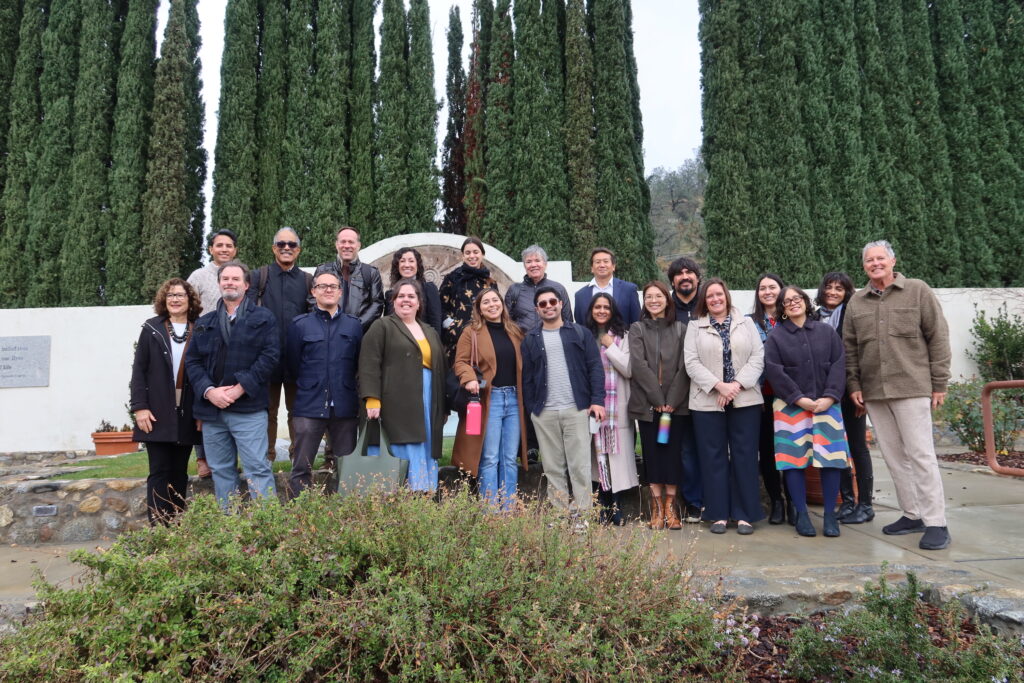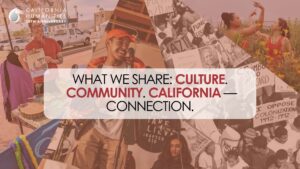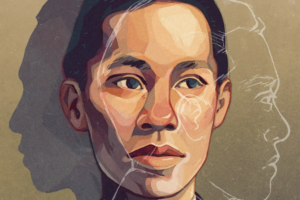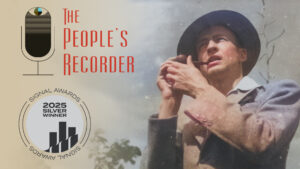Last month, California Humanities staff came together in the Central Valley for an in-person gathering with the Board of Directors, where we took a journey through the region’s labor, civil rights, and cultural history. First embarking on our Strategic Framework planning and exploring Bakersfield’s rich Basque heritage, our visit culminated at the National Chavez Center in Keene, CA, home to the César E. Chávez National Monument. Dedicated to the legacy of Cesar Chavez and the farmworker movement, it was an appropriate venue for our meeting as California Humanities’ continues to consider how equity will be central to its strategic framework and will guide its organizational activities both externally through our grantmaking and programs, and internally through the board, staff, and organizational infrastructure. Below are some highlights from our trip!
On January 24, California Humanities’ executive committee of the board and staff met at the Dolores Huerta Foundation in Bakersfield for an in-depth strategic framework planning and equity training session outlined by President and CEO Rick Noguchi with Jose Montano of the Aspire Group and Program Officer Lucena Lau Valle, who has been leading the equity working group at California Humanities.
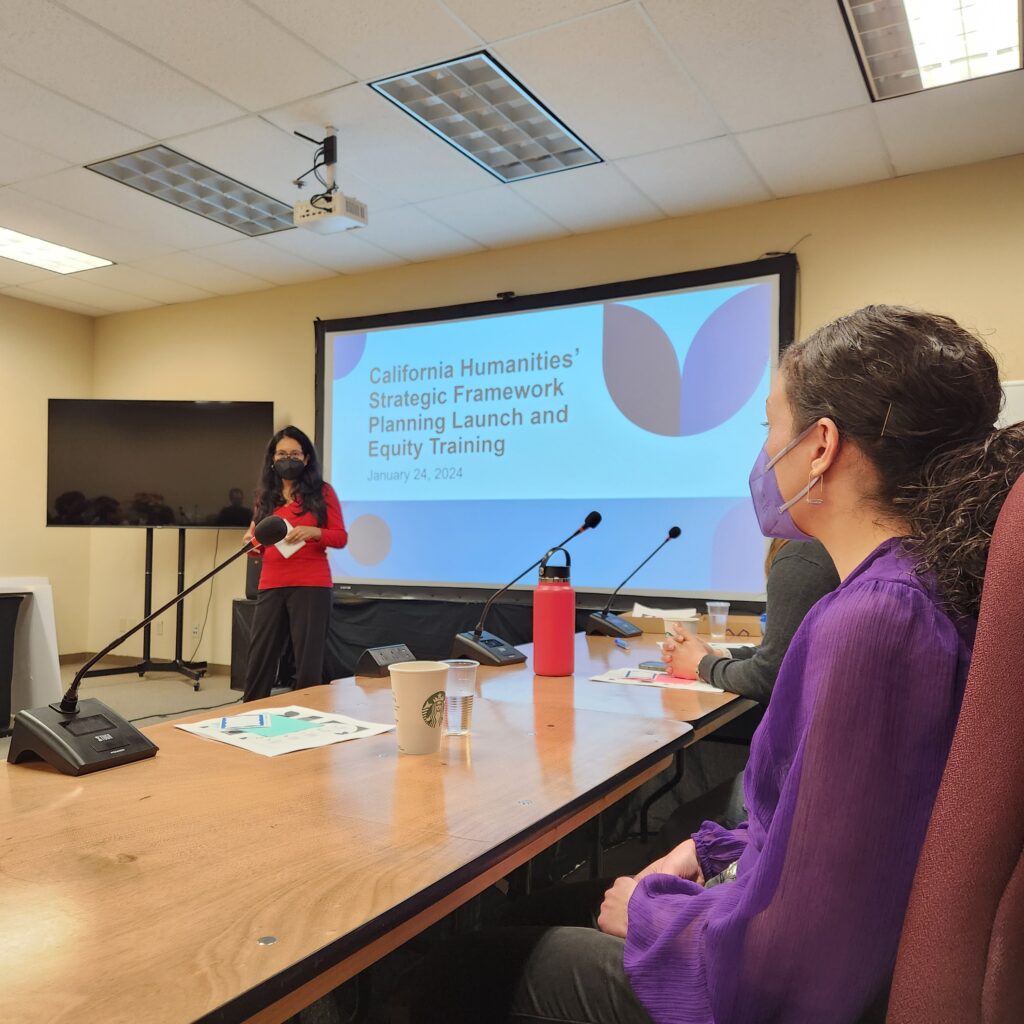
The organization will create a new strategic framework centered on equity as a commitment to dismantling structural and systemic barriers, and this session was the first of several that will happen this year leading up to its completion in the fall of 2024.
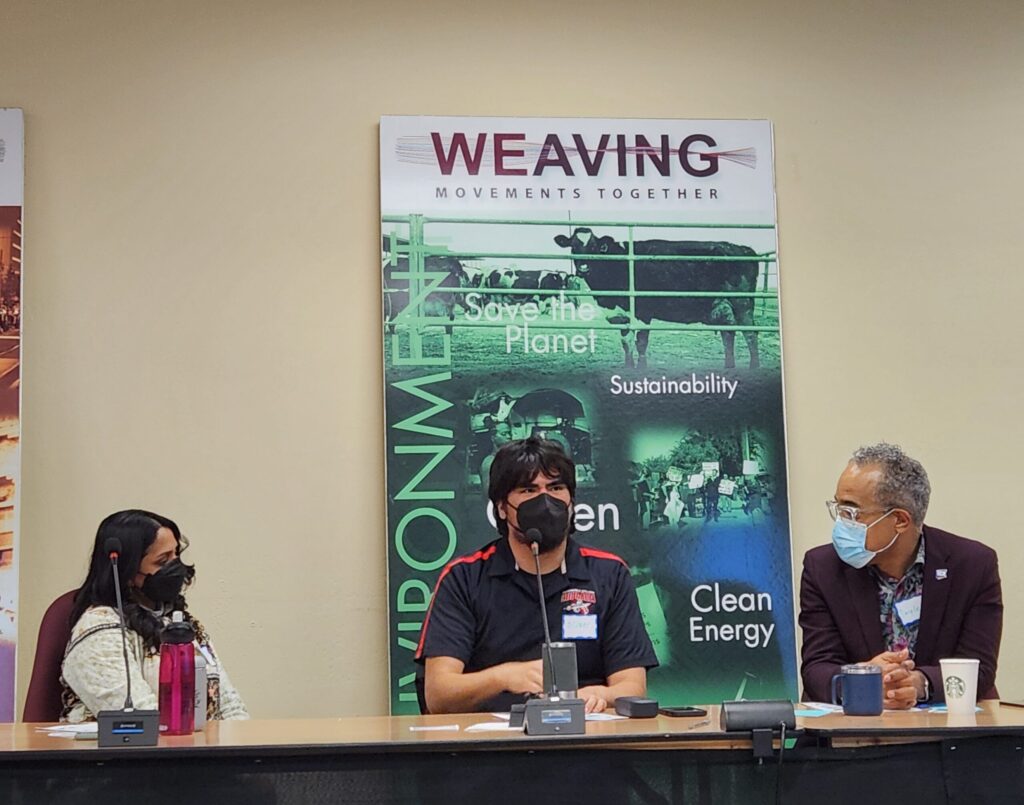
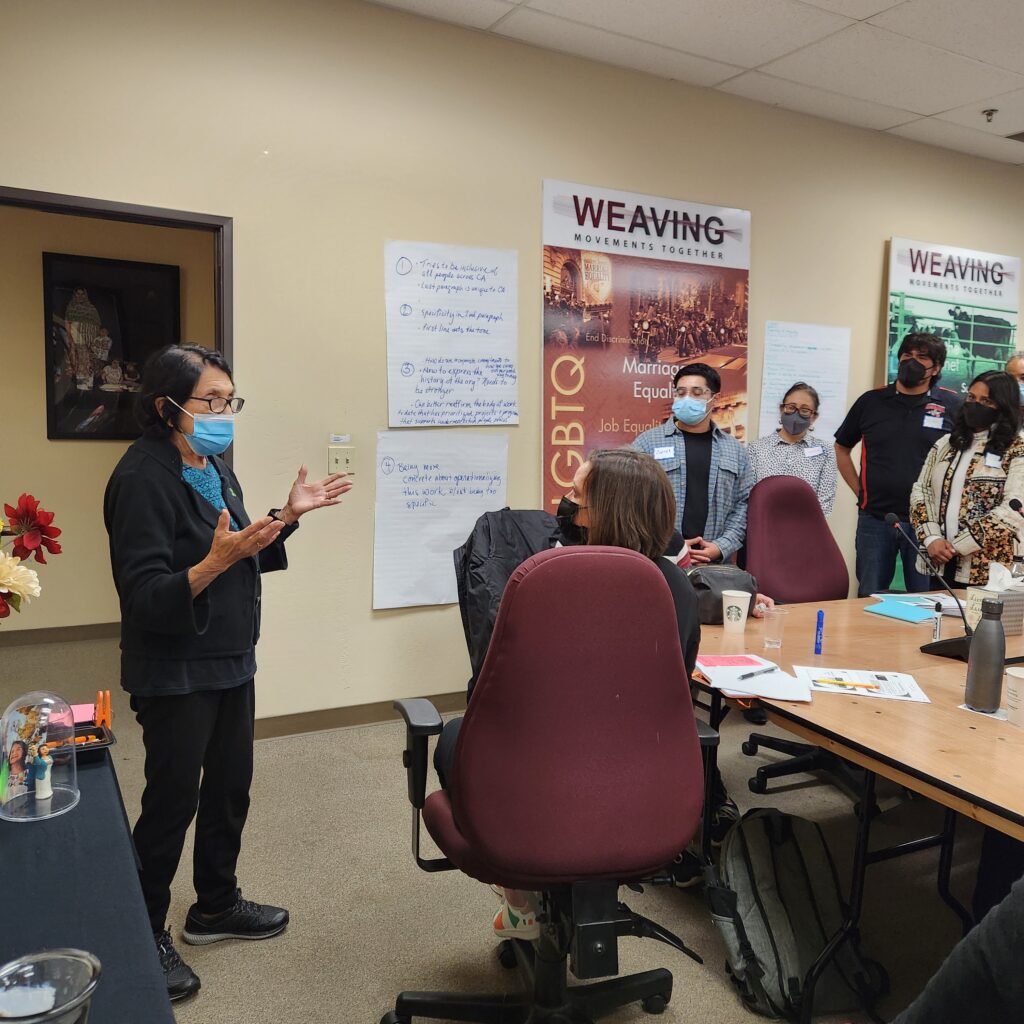
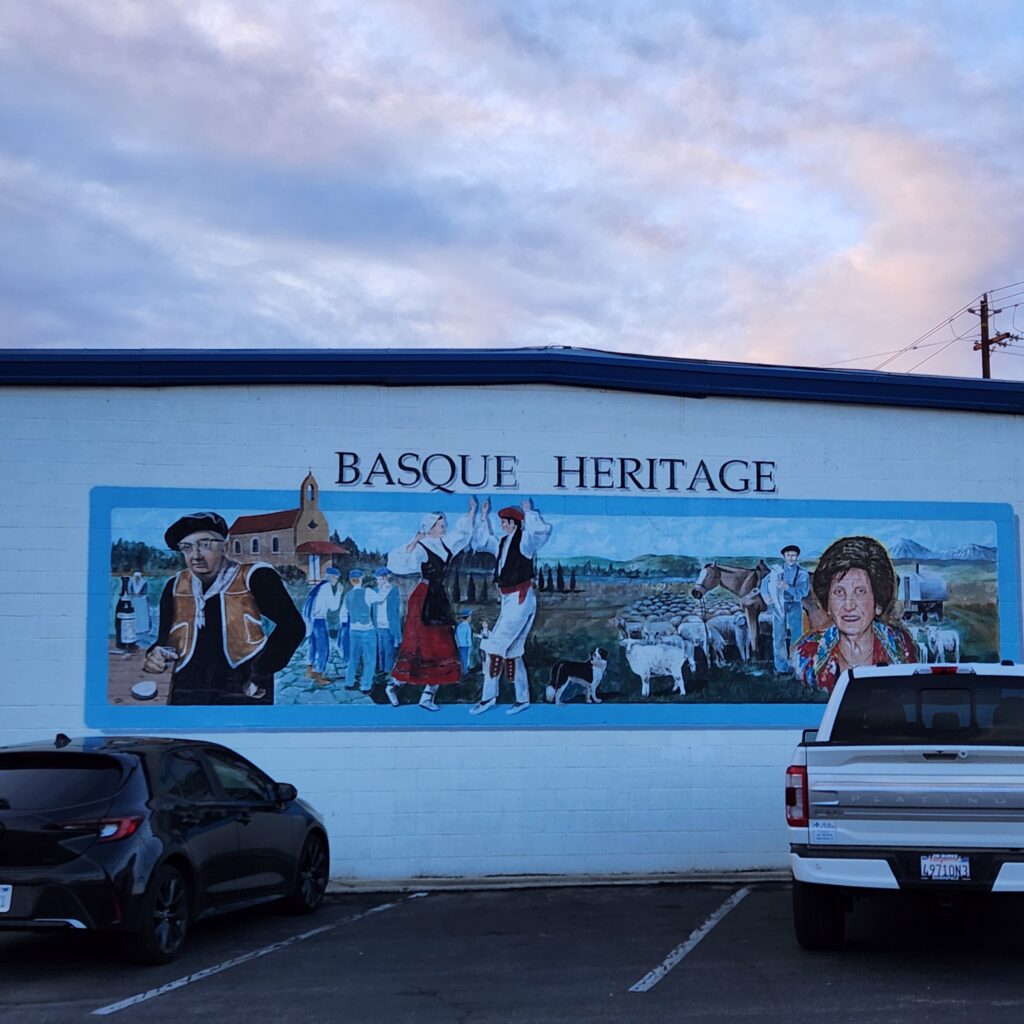
Now a major center of agriculture, Bakersfield has long been home to generations Basque Americans, with families who immigrated to the area as sheepherders starting in the 1880s and 1890s. Basque hotels and boarding houses arose to greet and host the new immigrants, and alongside them grew a rich food culture. Many of the city’s oldest and most historic restaurants are Basque, including Pyrenees Café, Benji’s French Basque Restaurant, Chalet Basque Restaurant, and Wool Growers Restaurant. The oldest, the Noriega Hotel, opened in 1893 in Kern City and closed in 2020 due to challenges associated with the Covid-19 pandemic.
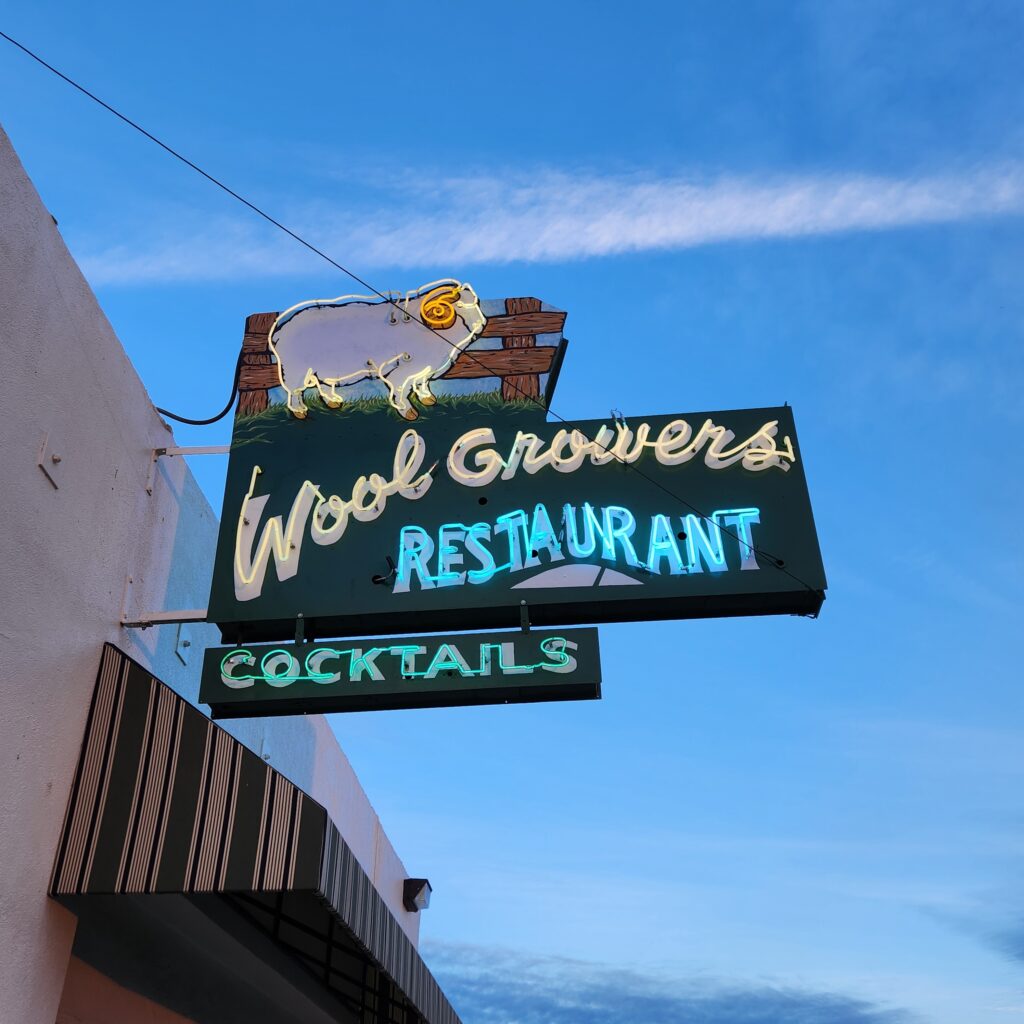
California Humanities staff and board visited the historic Wool Growers for a Bakersfield humanities-centered experience. Founded in 1954, the restaurant welcomes patrons with its distinctive neon sign. Inside, a warm interior is decorated with floral wallpaper, paintings of Basque country, and dozens of photographs documenting the past century of local Basque migration. Steven Gamboa, PhD, Interim Associate Dean, School of Arts & Humanities and Professor of Philosophy at CSU Bakersfield, joined us to share the region’s Basque history and cuisine over some of the restaurant’s California-Basque house favorites, including tomato salad, garlic cottage cheese, fried chicken, and pickled tongue.
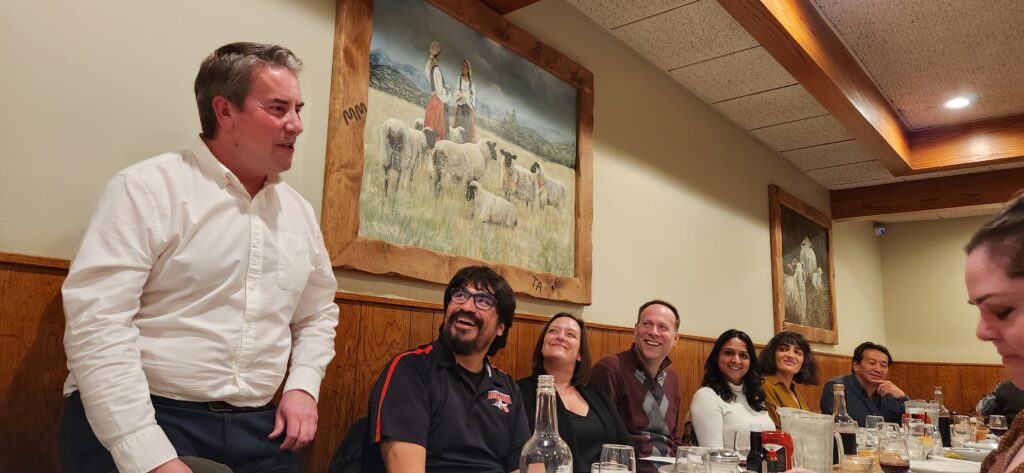
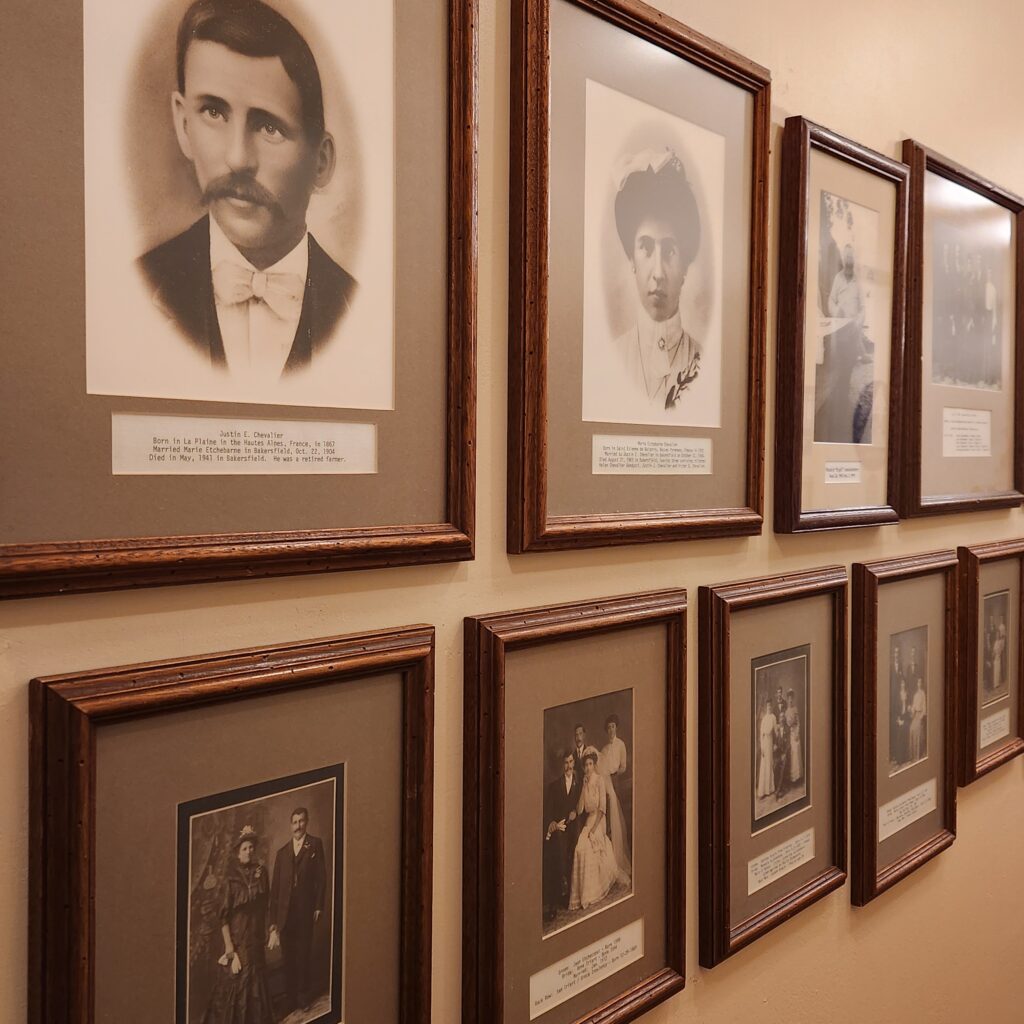
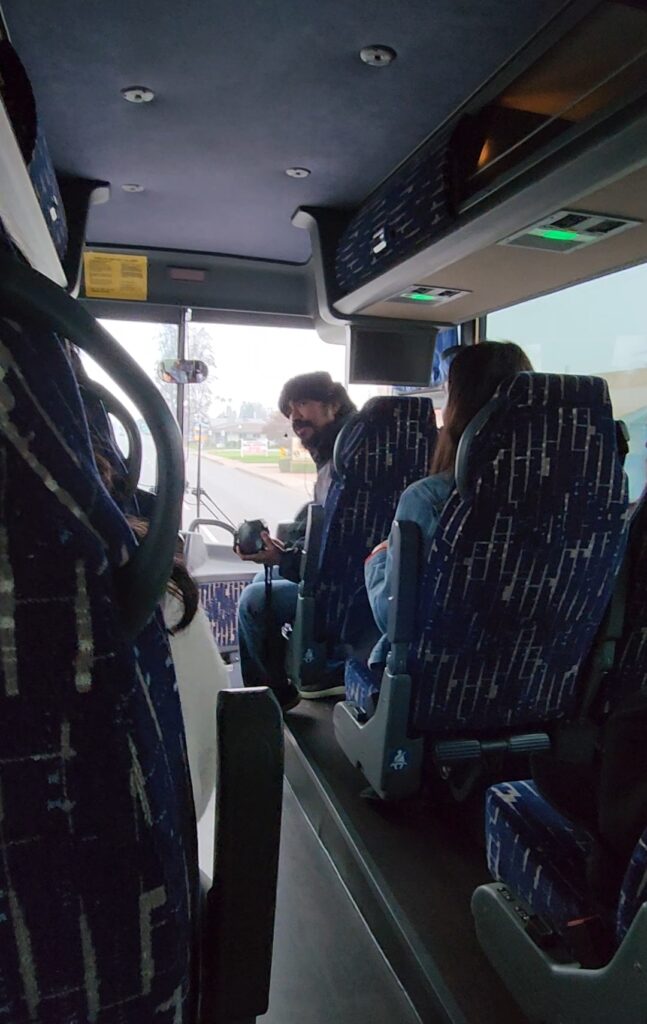
On January 25, board and staff spent the day at the César E. Chávez National Monument, located on the sprawling estate known as Nuestra Señora Reina de la Paz (Our Lady Queen of Peace), or La Paz. Created as a national monument in 2012, this was the national headquarters of the United Farm Workers of America and the home of Cesar Chavez in his later years (1971 to 1993). The site of a former rock quarry and tuberculosis sanatorium, it was here that Chavez and other leaders of the UFW orchestrated unprecedented successes for hundreds of thousands of farmworkers, including passage of the first US law that recognized farmworkers’ collective bargaining rights. La Paz soon became a tangible symbol of the UFW’s growth and a place where thousands of workers came to learn how to operate their union, affect social change, and plan their strategies. Today, the 7,000 square foot National Monument includes a visitors’ center featuring Chavez’s office and library, a courtyard, and memorial gardens.
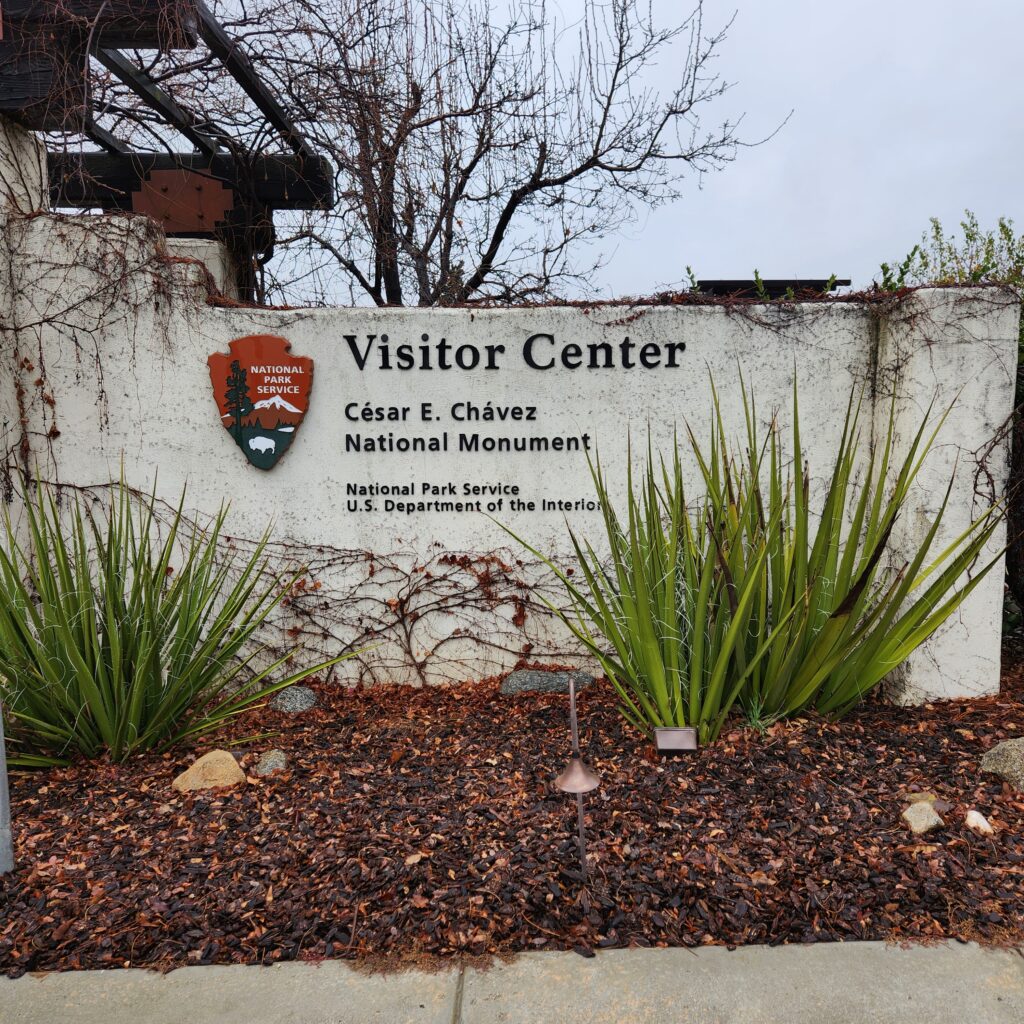
Andres Chavez, Executive Director of the Cesar Chavez Foundation, gave board and staff a special tour of the Monument. Chavez leads the arm of the Chavez Foundation that educates and promotes his grandfather’s legacy across the nation. This includes overseeing the National Chavez Center property at La Paz, a portion of which is now the César E. Chávez National Monument.
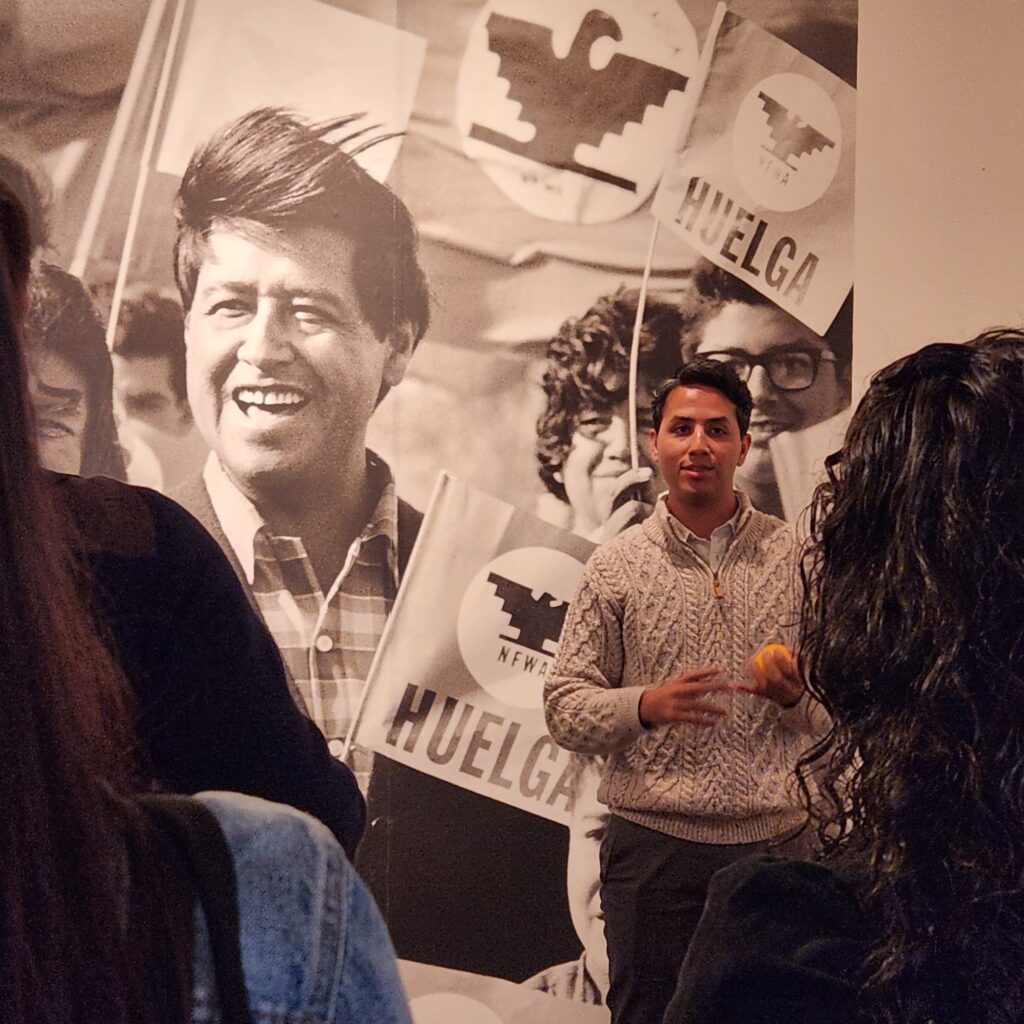
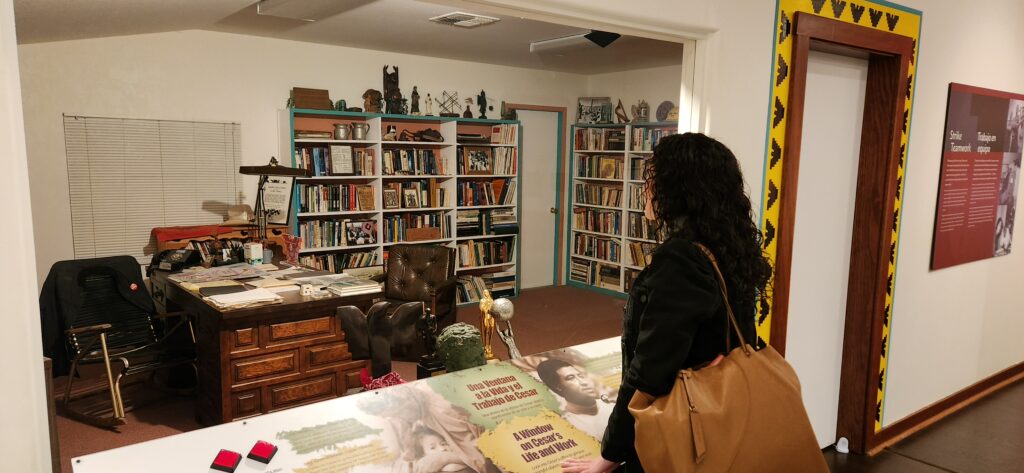
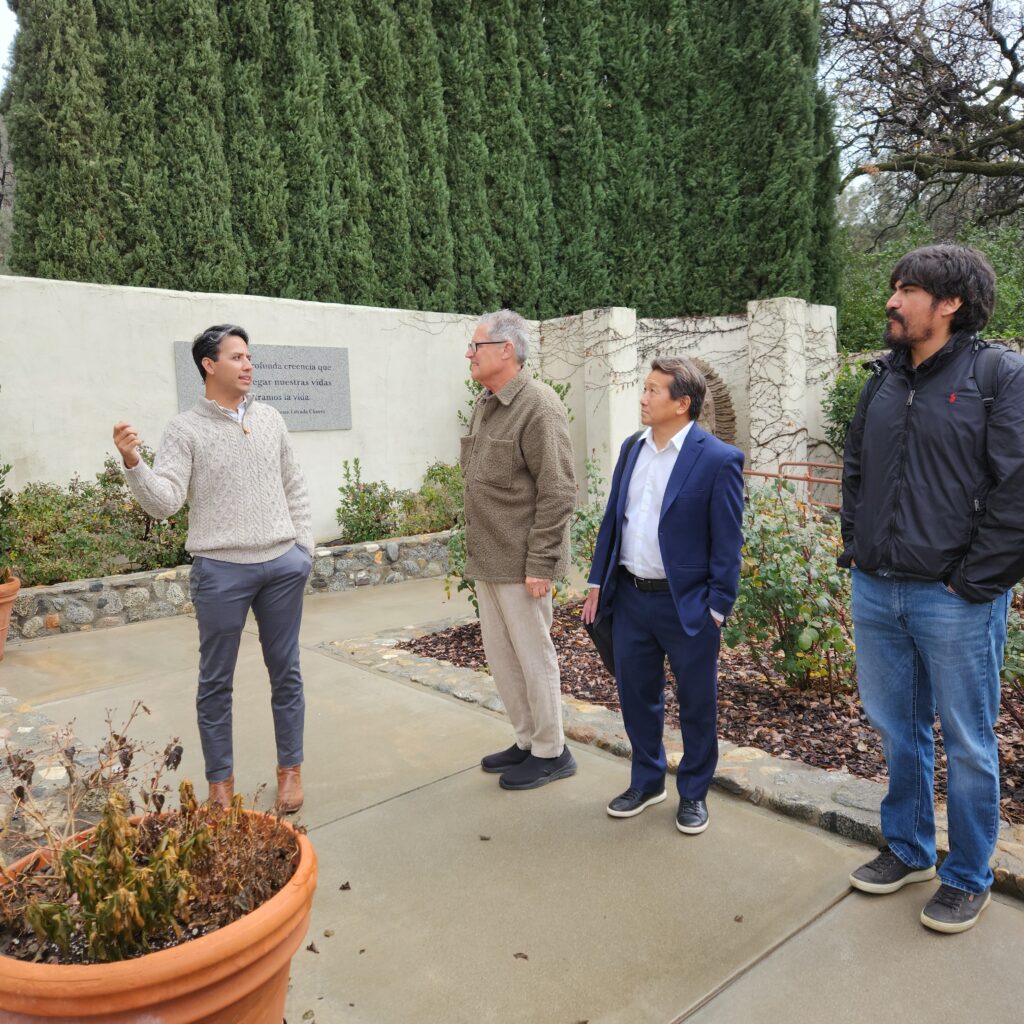
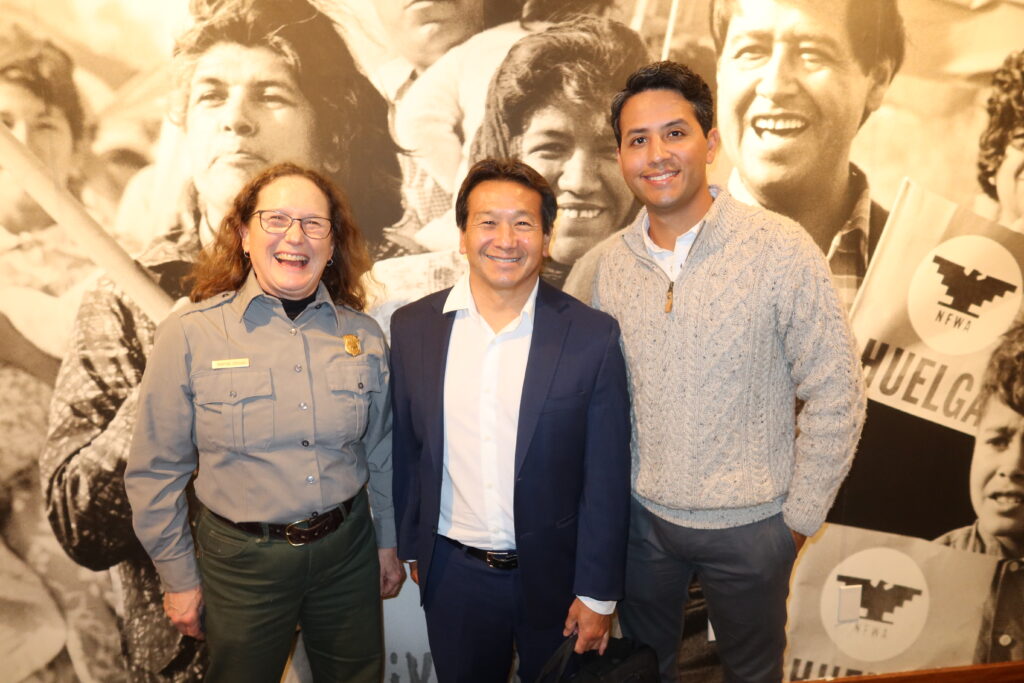
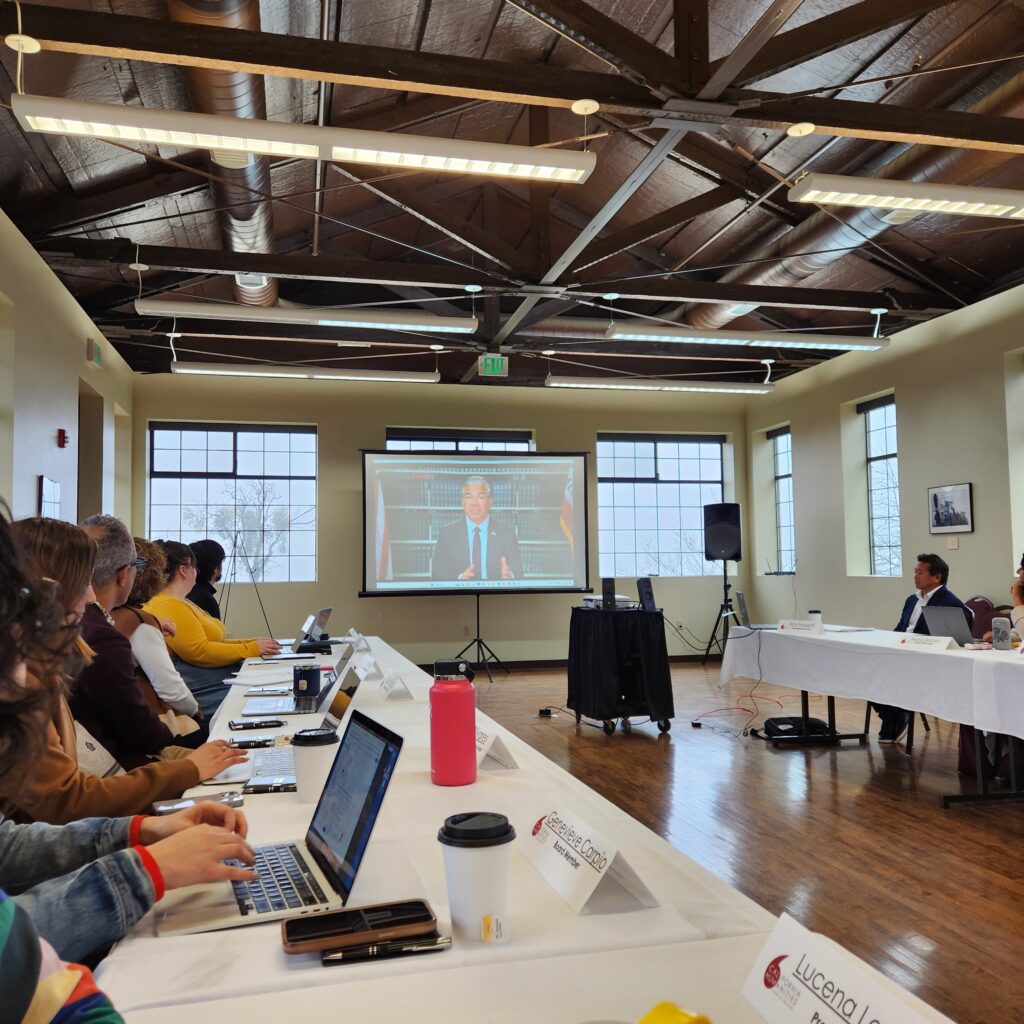
Our board meeting was bittersweet, as it marked the last for our Board Chair, Oliver Rosales, who has served on California Humanities’ Board of Directors since 2015. Based at Bakersfield College and a longtime practitioner of public humanities projects spotlighting the region’s labor history, our convening at La Paz was a fitting one to mark Oliver’s send-off.
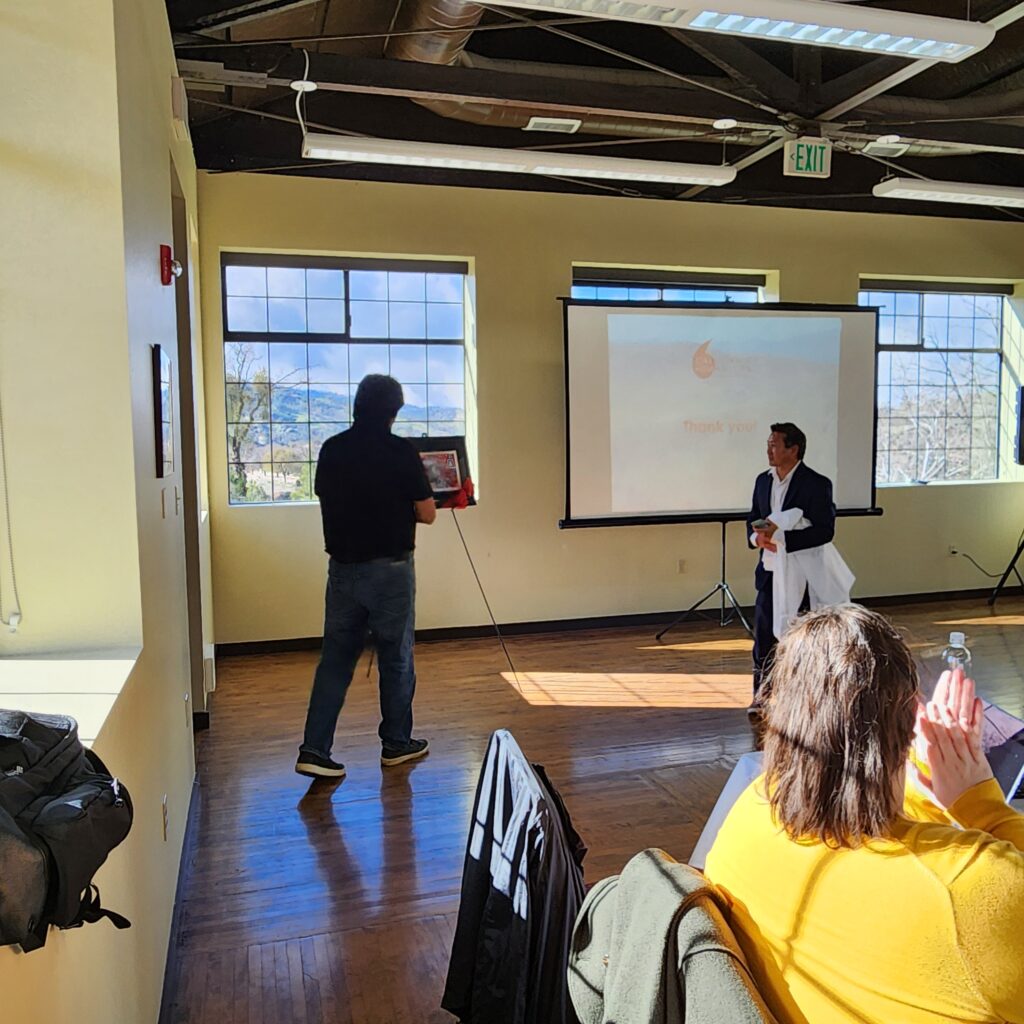
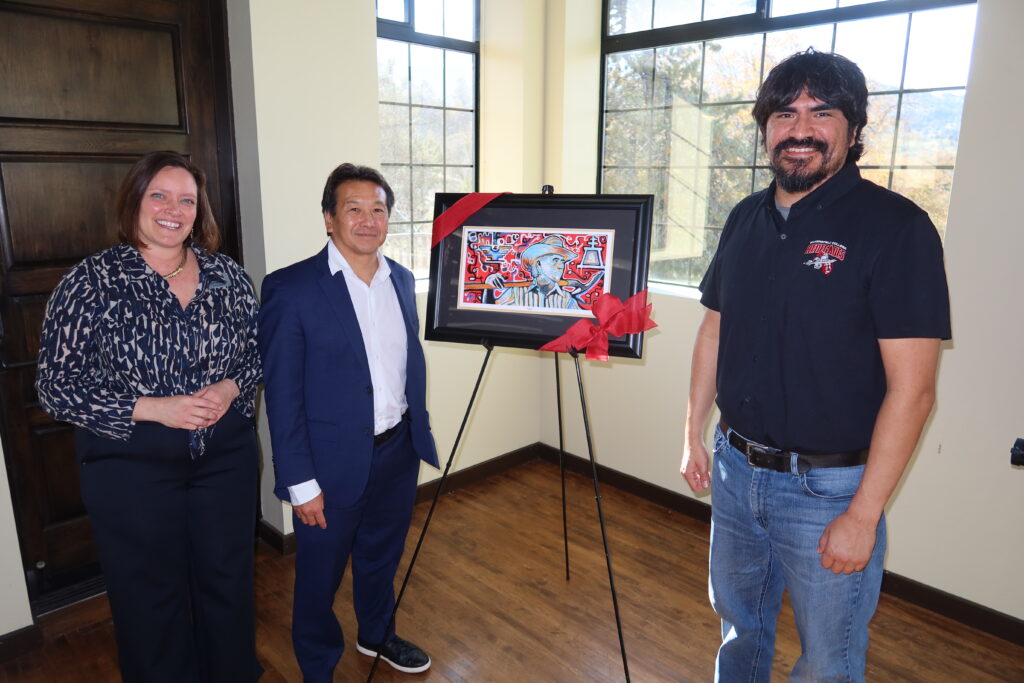
This meeting was an opportunity for Oliver to ceremoniously pass the torch to Rachel Hatch, who officially stepped into the role of Board Chair after serving as Vice Chair. Rachel is the Chief Operating Officer at Institute for the Future, whose mission is to help organizations, communities, and leaders become future-ready (read more about Rachel in our 3 Questions blog).
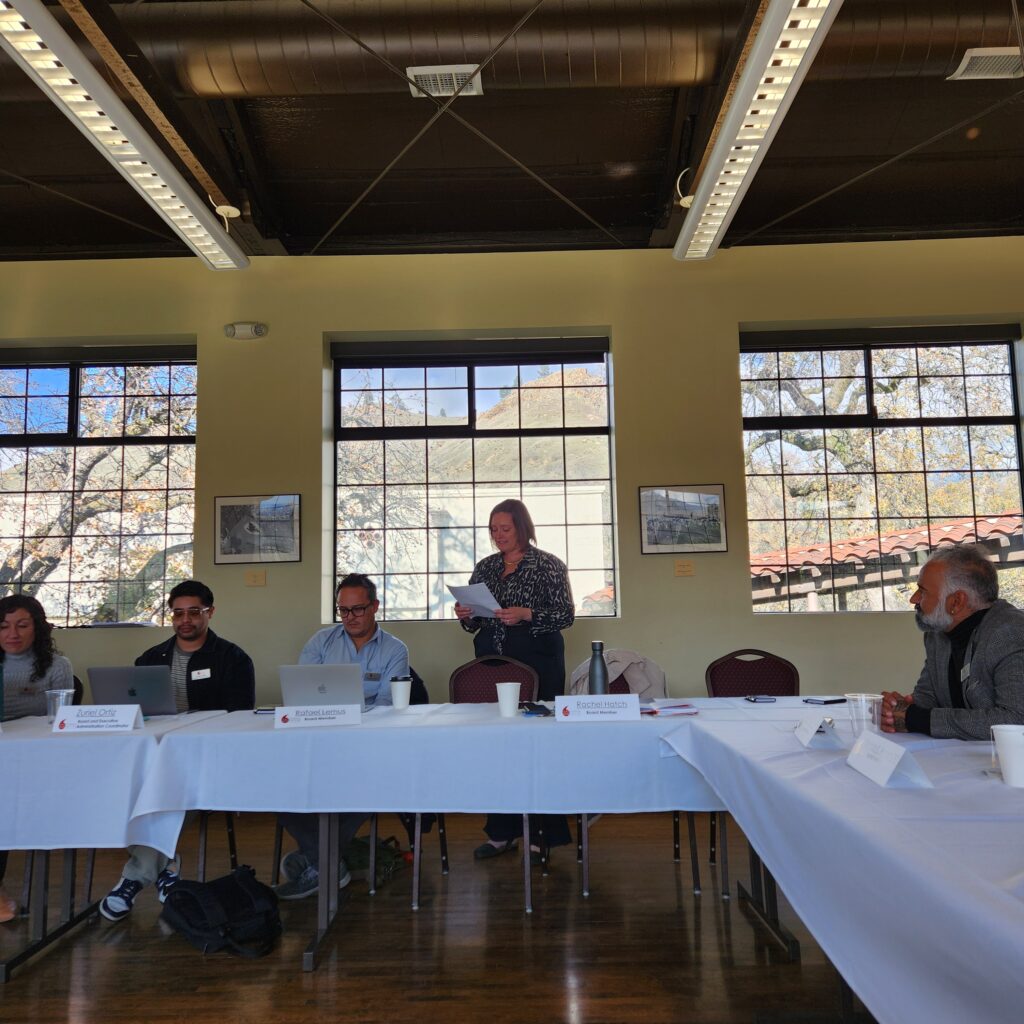
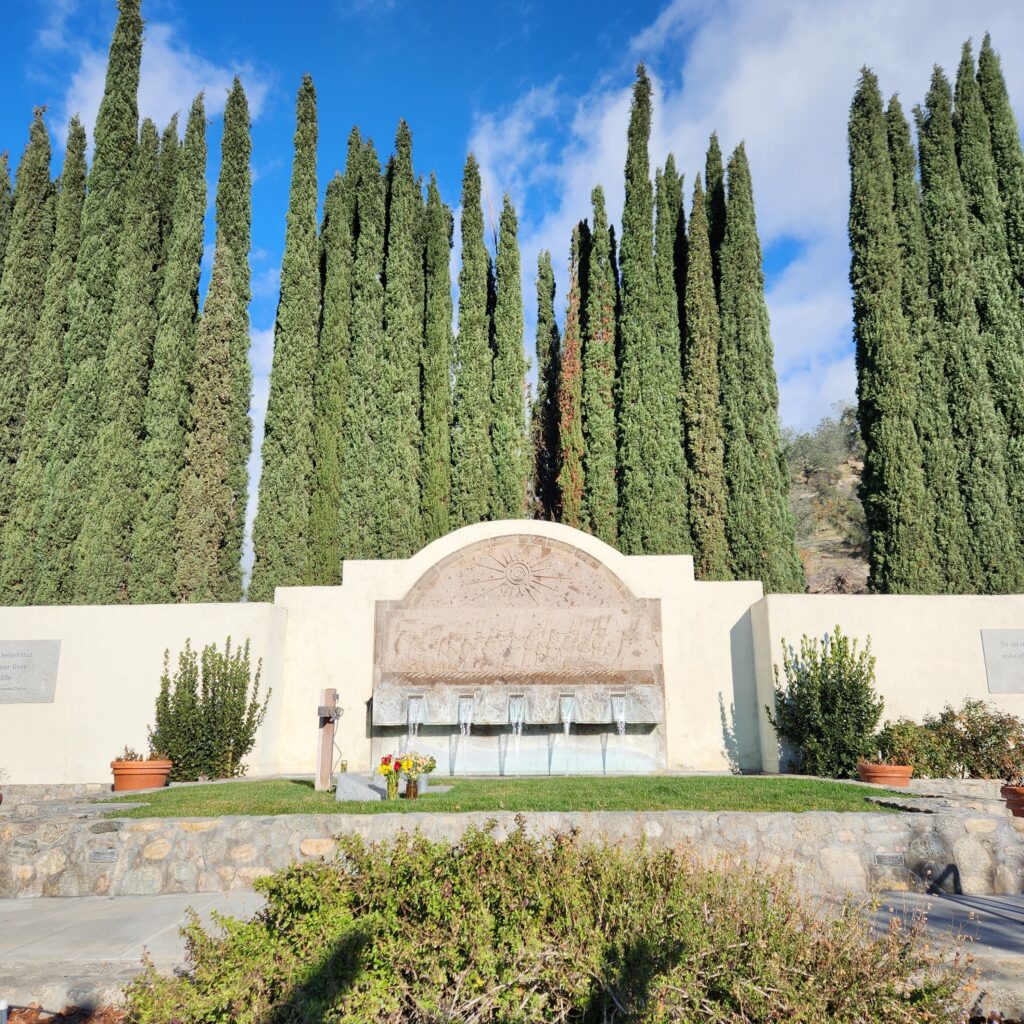
As we look ahead to Cesar Chavez Day on March 31, we are grateful to take lessons from these inspiring and thought-provoking spaces with us in our humanities work moving forward.

